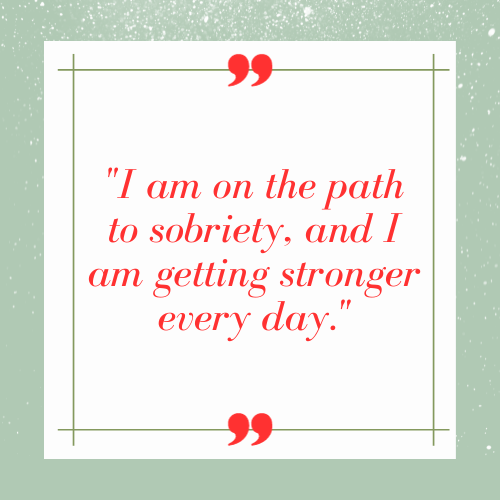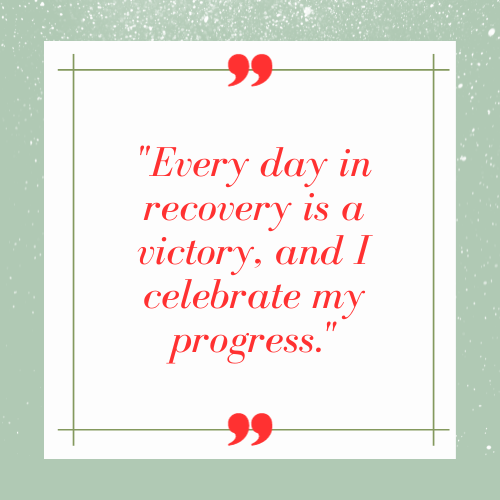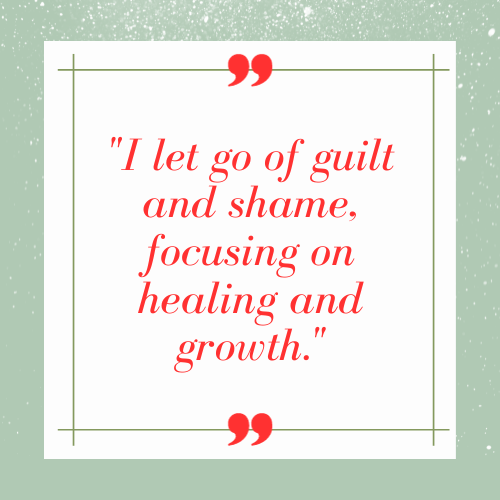Positive Affirmations
Negative self-talk is a common downfall many people face on their path to personal growth and self-improvement. Phrases like “I’m not good enough to do this,” “I’ll fail,” and “I’m a terrible person” can become pervasive, stopping us from progressing to the stage that we want to get to. But what if we told you that there is a tool to stop these types of intrusive thoughts?
Embrace the spirit of our Christmas campaign and treat yourself to the gift of well-being. Enjoy complimentary 30-minute therapy sessions by simply sharing your name, contact number, and the topic of concern with us at christmashelp@ukat.co.uk. In this season of giving, UKAT believes everyone deserves the support they need on their journey to a healthier and happier life.
We will explore the concept and significance of positive affirmations, a powerful tool that can potentially be a transformative force in our lives.
What are positive affirmations?
At their core, positive affirmations are concise, self-affirming statements that people use to challenge and overcome self-sabotaging and negative thoughts. These statements are designed to be positive, present tense and personal. They serve as a powerful tool to counteract the often persistent and detrimental inner dialogue that can hold us back.
How do positive affirmations work?
It must be remembered that consistency is key. By merely stating affirmations once and never reflecting upon them, you can’t expect them to work. Instead, it is thought that by consistently repeating these statements, we can reshape our thoughts, beliefs and behaviours.
Let’s dig a little deeper into how this process works:
Thoughts
Our thoughts are the foundation of our beliefs and actions. When we repeatedly affirm positive beliefs about ourselves and our abilities, we create new thought patterns that align with these affirmations. For instance, replacing “I can’t do this” with “I am capable of success” gradually changes the way we think about challenges and opportunities.
Beliefs
Our beliefs influence our perception of the world and our place in it. Positive affirmations challenge limiting beliefs and instil empowering ones. Over time, these affirmations can lead to a deep-seated belief in our own worth.
Behaviours
Our actions are a direct result of our thoughts and beliefs. Positive affirmations motivate us to take positive actions. For example, if we repeatedly affirm, “I am committed to my well-being,” we are more likely to engage in self-care practices that support our mental health and overall quality of life.
How to use positive affirmations effectively in addiction recovery
In the challenging journey of addiction recovery, positive affirmations can serve as guiding stars, illuminating the path toward sobriety and improved mental health. Here, we’ll explore a step-by-step process tailored to addiction recovery, providing affirmations that resonate with your goals. The idea is also to demonstrate how to integrate them into your daily life effectively.
Step 1: Identify your goals in recovery
When it comes to recovering from addiction, it’s essential to set clear, achievable goals that align with your desire for a healthier, substance-free life. These objectives may encompass maintaining sobriety, rebuilding relationships, enhancing self-esteem and managing triggers.
Affirmation example 2: “I choose to rebuild my relationships with love, trust and open communication.”
Step 2: Craft recovery-oriented affirmations
Recovery-focused affirmations are the backbone of your journey to sobriety. These affirmations should be positive, present-tense, personal and specific to your unique recovery challenges and aspirations.
Affirmation example 2: “I am resilient and can overcome any trigger or craving that comes my way.”
Step 3: Repetition and consistency in recovery
Consistency is the cornerstone of effective affirmation practice in addiction recovery. Repeatedly reciting your affirmations nurtures your subconscious mind and reinforces your commitment to sobriety. Make it a part of your daily routine, reciting your affirmations in the morning, before bed, or whenever you need a boost.
Affirmation example 2: “I choose sobriety every day, and my affirmations remind me of my strength and resilience.”
Step 4: Visualise your recovery journey
Visualisation can be a potent tool in addiction recovery. As you recite your recovery affirmations, close your eyes and vividly imagine yourself overcoming challenges, staying sober and living a healthy, substance-free life.
Affirmation example 2: “I see myself confidently managing triggers, choosing a healthier path and embracing a drug-free life.”
Over to you!
Now that you have an understanding of how positive affirmations work and have the know-how to create your own, it’s your turn to dive into the world of self-empowerment. Think of it as your personal pep talk – a way to boost your addiction recovery journey.
As we explore a variety of uplifting affirmation quotes, we encourage you to get creative and come up with your own statements that resonate with your unique experience.
This affirmation encourages a shift in belief and behaviour by reinforcing the idea that recovery is a journey filled with growth and strength.
It encourages a change in thoughts, emphasising the choice to leave the past behind and look forward to a positive future.
Promotes a shift in behaviour by advocating patience and commitment to the recovery process.
Encourages a shift in belief by instilling confidence in your ability to overcome challenges and adversity in recovery.
This affirmation emphasises a behavioural shift, empowering you to make healthy choices and resist cravings.
Encourages a change in thought by reframing each day as a triumph and celebrating small steps toward recovery.
Promotes behavioural change by asserting control over your choices and highlighting the commitment to sobriety.
Encourages a shift in belief by affirming self-worth and the possibility of a fulfilling life without addiction.
This emphasises behavioural change by acknowledging personal strength in dealing with triggers and challenges.
Encourages a change in thought and belief by releasing negative emotions and shifting the focus toward healing and personal growth.
Promotes a change in belief by emphasising the presence of a supportive community and its positive impact on recovery.
Encourages reshaped thoughts by encouraging gratitude and a sense of purpose in recovery.
Promotes a shift in belief and behaviour by letting go of self-blame and embracing forgiveness.
Encourages a change in belief by recognising your resilience and the power of your recovery story.
Encourages reshaped thoughts by promoting mindfulness and a sense of purpose in the recovery journey.
Final thoughts
By weaving these positive affirmations into our daily lives, we can reprogramme our minds, encourage a renewed sense of self-worth and find the strength to conquer the hurdles of recovery.
But remember, it’s not just about the words; consistency and visualisation are key. Harness the power of these affirmations to guide you through the challenging path of addiction recovery. With each statement, you declare your resolve to transform and embrace a life free from addiction. So, let these affirmations light your way, and let them remind you daily of your courage and resilience.
Want to learn more about positive affirmation and addiction recovery?
UKAT offers addiction recovery programmes that incorporate elements of positive psychology, such as positive affirmations. Our experienced team, supportive community and holistic approach guarantee a non-judgmental and all-encompassing healing experience. Take that crucial first step toward recovery and a brighter future. Contact us today and let UKAT be your guide on your journey to freedom from addiction.








